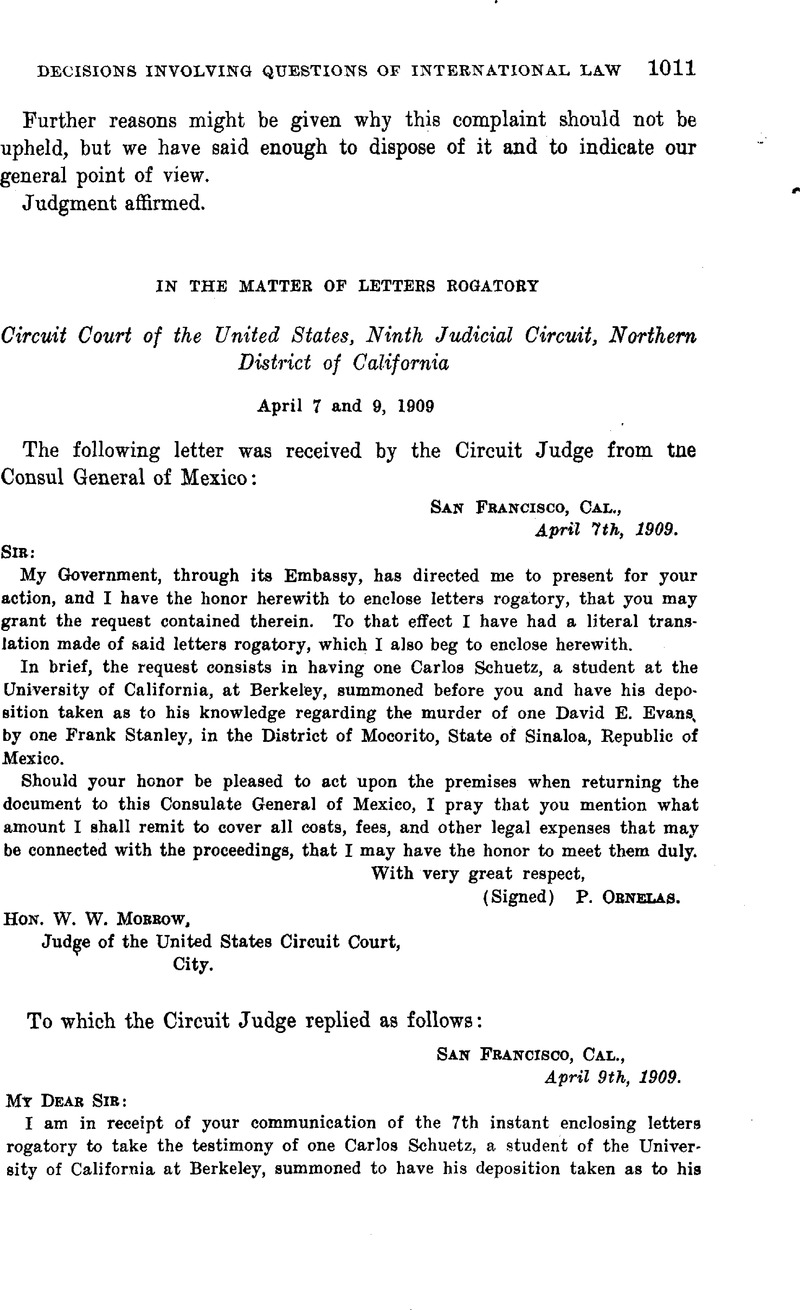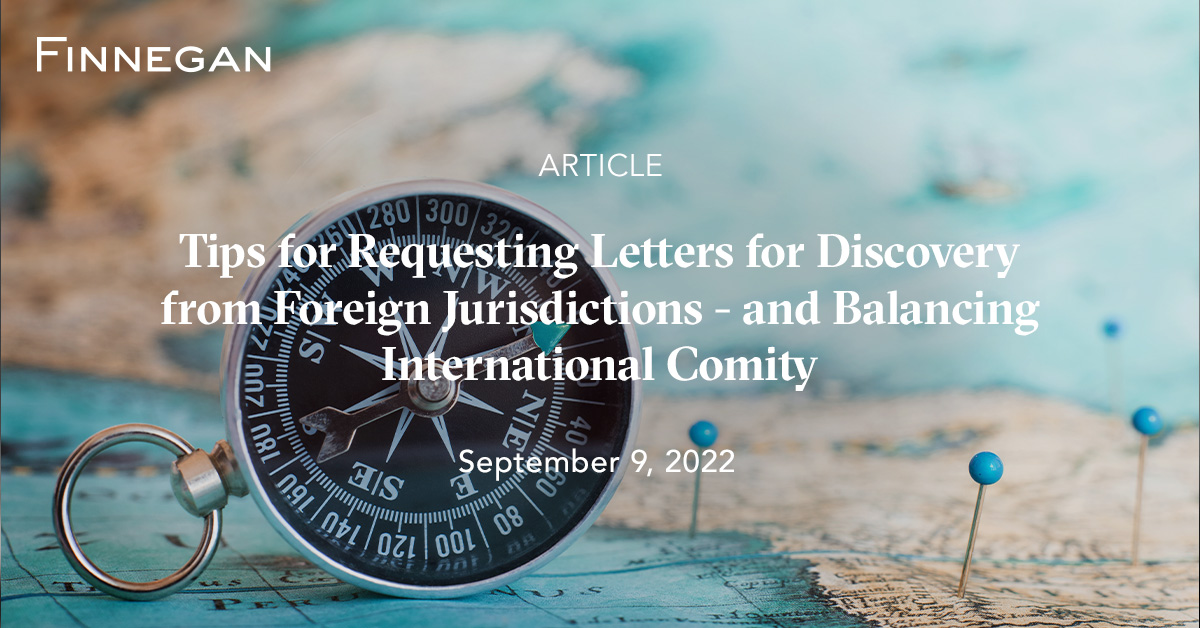Typical Difficulties Faced When Carrying Out Letters Rogatory Requests
Typical Difficulties Faced When Carrying Out Letters Rogatory Requests
Blog Article
Letters Rogatory Explained: Facilitating Legal Cooperation In Between Countries

Meaning of Letters Rogatory
Letters rogatory are official requests made by a court in one territory to a court in another territory, seeking support in getting proof or statement for a legal action. This step-by-step mechanism is essential in the context of global regulation, where lawful systems might vary, and cross-border teamwork is essential. Letters rogatory assist in the celebration of details that may be essential for adjudicating instances, particularly in circumstances including complex global problems.
Generally, these requests develop in civil, criminal, or administrative matters where a celebration calls for evidence that lies outside the jurisdiction of the asking for court. The letters function as a method to make sure that the principles of due procedure are promoted, making it possible for courts to gain access to evidence that might or else stay hard to reach because of legal or geographic barriers.
The use of letters rogatory is controlled by international treaties, reciprocal arrangements, or residential legislations, which delineate the treatments and responsibilities of the courts included. It is very important to note that the execution of such demands is not ensured; they rely on the legislations and practices of the territory obtaining the letter. Therefore, letters rogatory are a crucial tool for promoting lawful collaboration and making certain justice throughout borders.
The Process of Issuing Letters Rogatory
Issuing letters rogatory includes a structured procedure that guarantees conformity with both residential and worldwide legal standards. The requesting party, generally a court or lawful authority, composes an official demand outlining the nature of the help looked for, the proof or information needed, and the lawful basis for the request. This file needs to be exact to help with understanding by the foreign jurisdiction.

The next action involves transferring the letters rogatory to the designated foreign authority. This is often done with diplomatic networks or international lawful aid frameworks, making sure that the demand is gotten and recognized by the international court. The foreign court then refines the request according to its own lawful procedures, ultimately reacting to the requesting celebration with the sought-after details or evidence, hence promoting global lawful participation.
Significance in International Law
The significance of letters rogatory in global law can not be overemphasized, as they act as an important system for judicial participation across my site borders. These official ask for help in legal matters enable courts in one territory to inquire, evidence, or the existence of witnesses from one more jurisdiction, consequently facilitating the administration of justice in transnational instances.
Letters rogatory are particularly vital in the context of globalization, where lawful disagreements usually extend numerous nations. They enable the collection of evidence that could or else be inaccessible, making certain that lawful procedures are informed and fair. By cultivating cooperation in between judicial systems, letters rogatory assistance support the regulation of law and promote common regard among countries.
Moreover, the usage of letters rogatory shows a commitment to global standards and concepts of cooperation, mirroring the interconnected nature of contemporary legal practices. It highlights the importance of sticking to recognized procedures and treaties, such as the Hague Convention, which offers a structure for these demands - Letters rogatory. Inevitably, letters rogatory improve the efficiency of legal procedures, ensuring that justice is not impeded by geographical borders
Difficulties and Limitations
Regardless of their importance, letters rogatory face a number of difficulties and restrictions that can hamper their performance. One primary concern is the differing legal frameworks and treatments across jurisdictions, which can cause misconceptions and delays in the implementation of requests. Various nations may have distinct demands for the validity of letters rogatory, making complex the procedure better.
Furthermore, the often lengthy nature of international legal cooperation can prevent timely access to proof or witnesses. This delay might detrimentally influence ongoing investigations or legal procedures, especially in cases requiring urgent activity. Furthermore, the Extra resources lack of sources and training in some jurisdictions can lead to not enough handling of requests, resulting in incomplete or poor actions.
Countries with much less formal lawful systems might struggle to conform with the procedural rigor anticipated in letters rogatory. These obstacles necessitate continuous dialogue and reform to boost the effectiveness of letters rogatory in legal collaboration.
Instance Researches and Instances

Conversely, challenges can develop, as seen in an instance entailing a European nation looking for evidence in an ongoing criminal issue from a non-EU nation - Letters rogatory. The procedure was postponed because of bureaucratic obstacles and varying legal requirements, ultimately preventing the examination
These examples show that while letters rogatory can promote global teamwork and quicken legal process, they also highlight the requirement for clear communication and understanding of lawful structures in between countries. Such study emphasize the importance of refining this device to enhance efficiency and efficiency in global lawful issues.
Conclusion
In summary, letters rogatory work as an important system for facilitating lawful teamwork between nations, ensuring the collection of proof and statement across jurisdictions. Their significance in international regulation can not be overstated, as they promote due process and enhance the performance of cross-border legal proceedings. Challenges such as differing legal frameworks and political tensions may prevent their effectiveness. Proceeded efforts to improve and enhance the process are essential for fostering stronger worldwide judicial partnership.
Letters rogatory are formal requests made by a check my blog court in one jurisdiction to a court in another jurisdiction, seeking help in obtaining evidence or testimony for a legal proceeding. The asking for celebration, generally a court or lawful authority, composes a formal demand outlining the nature of the help looked for, the evidence or information needed, and the legal basis for the demand. The foreign court then refines the request according to its very own legal treatments, ultimately reacting to the asking for celebration with the desired information or evidence, hence helping with global lawful collaboration.
Additionally, the usage of letters rogatory shows a dedication to global norms and principles of teamwork, mirroring the interconnected nature of contemporary legal methods.International lawful cooperation via letters rogatory is not without its real-world ramifications, as highlighted by various instance researches that highlight both challenges and successes.
Report this page